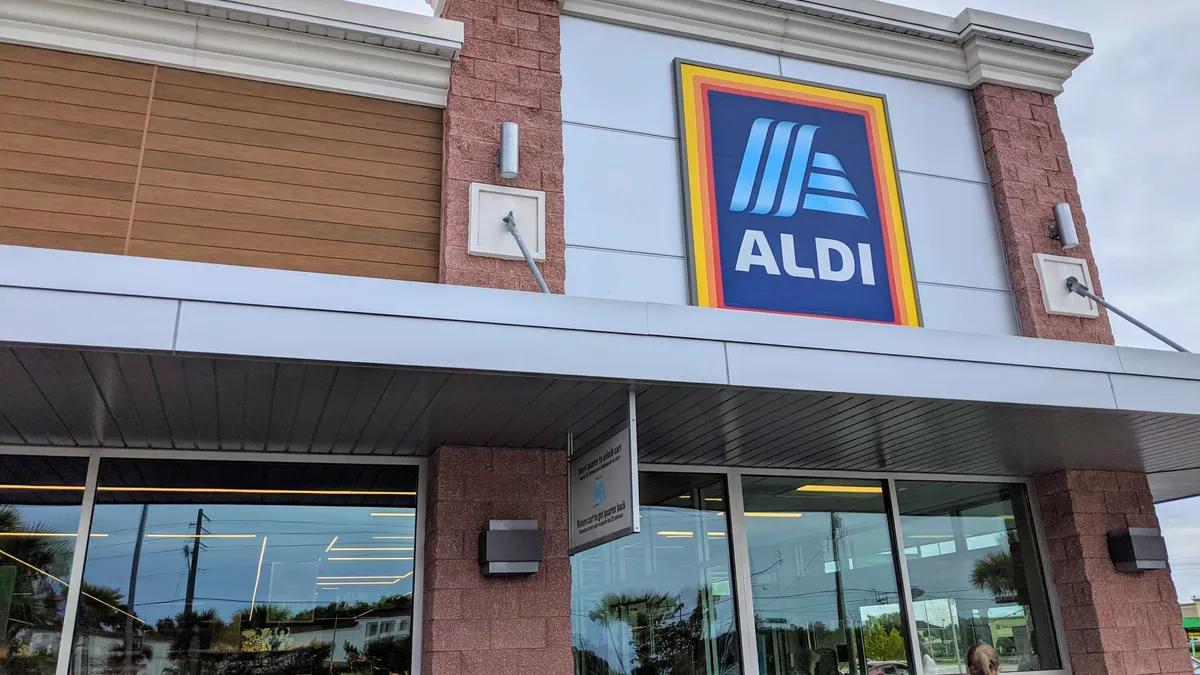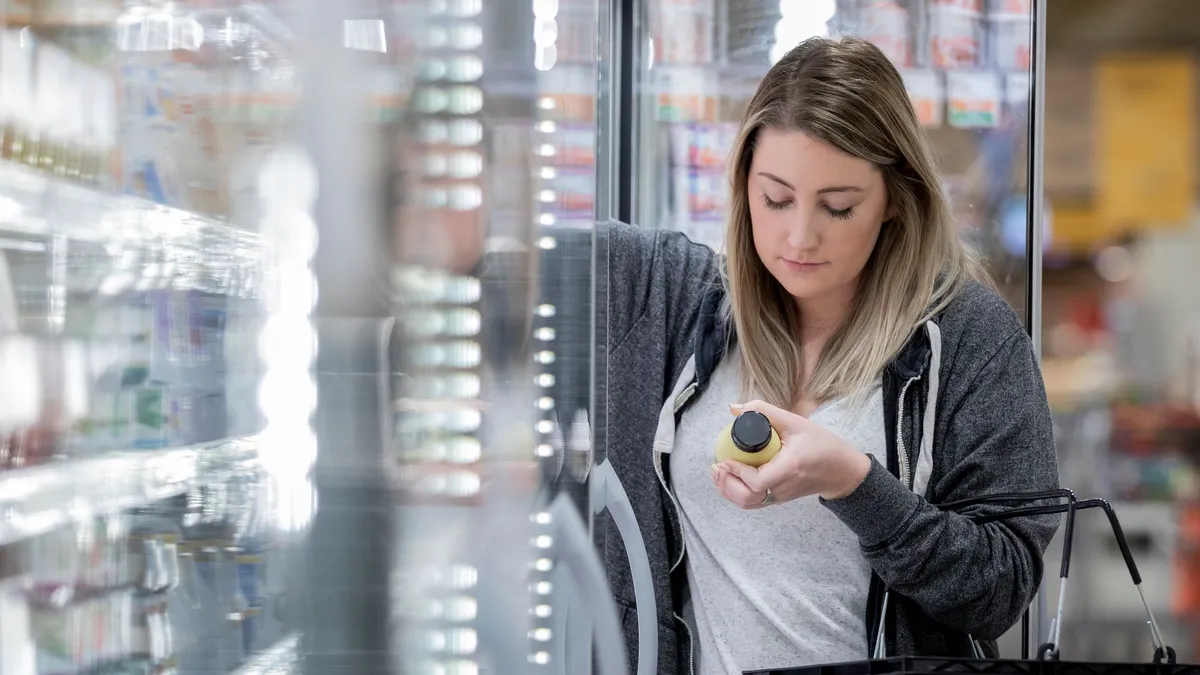Dive Brief:
- Aldi announced Wednesday its U.S. stores have stopped offering plastic shopping bags, closing out a pledge it announced back in 2022.
- The discounter said it will also transition to natural refrigerants by the end of 2035. Starting this year, the company is planning to buy “natural refrigerants” for all of its new and remodeled stores as well as replace refrigerants in existing stores with ones that have low global warming potential.
- The two efforts aim to build on the discount grocer’s sustainability moves as the grocery industry ramps up its planet-focused work.
Dive Insight:
Aldi says it’s the first major U.S. retailer to phase out plastic shopping bags — a unique claim that could help it connect with shoppers in the growing number of markets where it operates.
This is the latest in a series of moves by major retailers to phase out plastic bags at a smaller scale, in part to comply with state laws.
Aldi met its goal of eliminating plastic shopping bags across its fleet of more than 2,300 U.S. stores by the end of 2023 — a move that will prevent nearly 4,400 tons, roughly 9 million pounds, of plastic from going to landfills annually, per the announcement.
In 2022, Aldi US first announced its commitment to do away with plastic shopping bags from its stateside stores, tying the initiative to sustainability goals the retailer set in March 2021, which address greenhouse gas emissions, operational waste, food waste and other aspects of its operations.
The discount grocer’s natural refrigerants transition goal follows the company’s implementation of environmentally friendly refrigerants in more than 600 stores, which has helped save nearly 60% of potential carbon emissions each year.
For the transition, Aldi said it will deploy a purchasing strategy that incorporates “the best refrigerant solution” for each region’s distinct climate including both carbon dioxide and propane refrigerants.
Aldi US has said that its work to transition to natural refrigerants has lowered the company’s potential carbon emissions damage average per store by over 50% since 2015.
Aldi US CEO Jason Hart said in the announcement that the decisions about the plastic bags and natural refrigerants aim to boost customer and employee morale around supporting the company.
“Eliminating plastic shopping bags from our stores and transitioning to environmentally friendly refrigerant systems not only help us protect the environment, but they also help reduce costs which we then pass on to our customers,” Hart said.
Aldi had previously announced several major sustainability targets, including:
- Reducing greenhouse gas emissions by 26% by 2025
- Achieving zero waste in operations by diverting 90% of the company’s waste from landfills by 2025
- Cutting food waste by 50% by 2030.
The discount grocer has also been working to revamp its packaging with goals to use more postconsumer recycled content in its plastic packaging, reducing packaging materials and making more of its Aldi-exclusive packaging reusable, recyclable or compostable.
The continued sustainability efforts come at a time when Aldi is quickly growing in the U.S. In August, Aldi announced plans to buy approximately 400 Winn-Dixie and Harveys Supermarket stores across five Southeastern states. That deal is expected to close early this year, subject to regulatory approval and other closing conditions.
“As one of America’s fastest-growing retailers, we take our responsibility to lead the industry in sustainability seriously, so our customers don't have to choose between shopping responsibly and saving money,” Hart said.
















